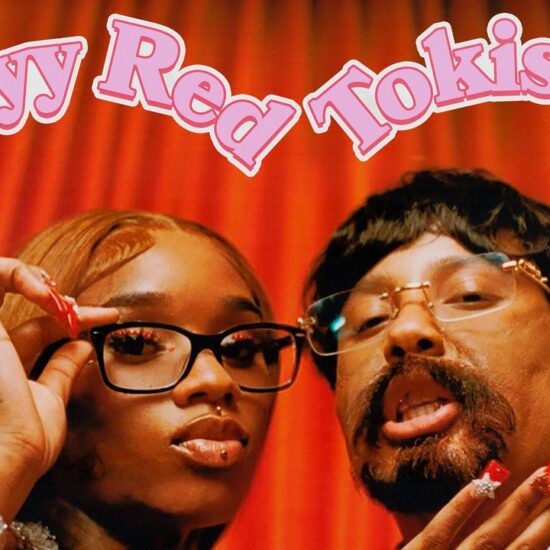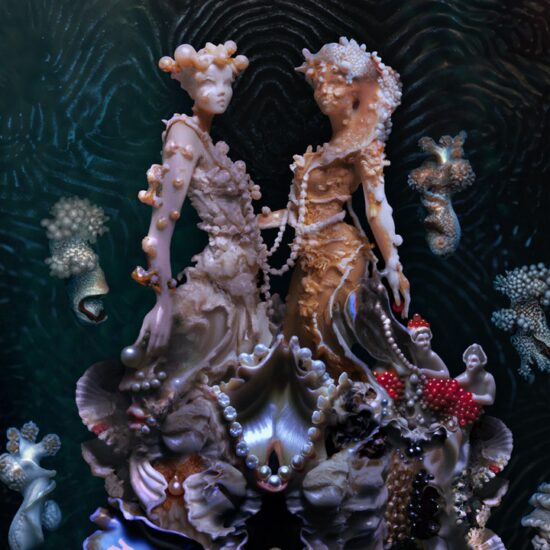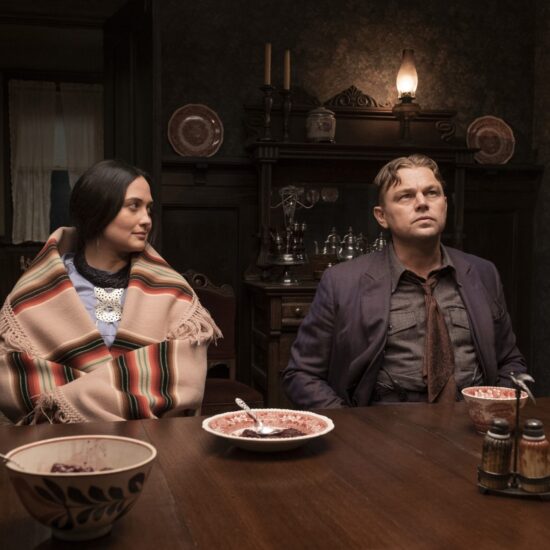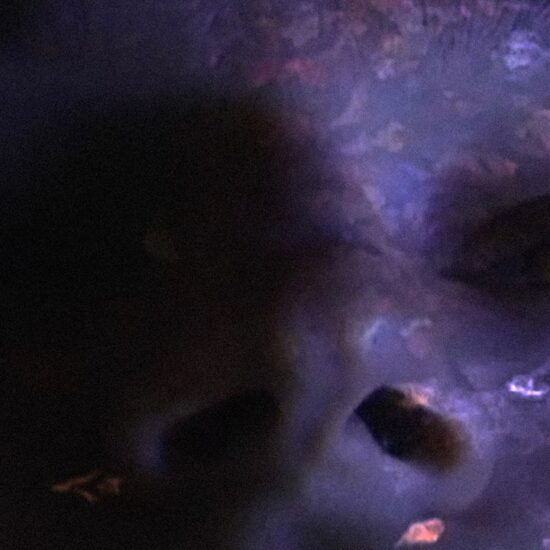
A daughter uncovers her mother’s wartime scrapbooks in this mixed-media dance of memory set between present-day Montreal and 1980s Beirut.
Though it feels like the phrase “generational trauma” is everywhere these days, it’s only in the past decade that growing mental health awareness has made such terms ubiquitous. Though scientists have long studied the ways inherited trauma can actually alter our DNA, only recently have epigenetics filtered into everyday usage. But artists do not need science to tell them what they feel in their bones, and film is a powerful tool to illustrate the ephemeral memories one stores in the body.
Set between present-day Montreal and 1980s Beirut, “Memory Box” actualizes a treasure trove of unprocessed trauma in the form of a mysterious box of letters, scrapbooks, and tapes. When a curious daughter discovers a vast archive of her mother’s distant past, she begins to understand the difficult woman who raised her in new ways. As cassette recordings fade into voice memos, the work of filmmakers Joana Hadjithomas and Khalil Joreige blends old and new in a lyrical mixed-media dance of memory. Blurring the lines between past and present, “Memory Box” floats in and out of two parallel stories, never quite allowing either one to take hold. As the focus shifts from daughter to mother, the audience is caught in the middle. Much like memory itself, the threads never fully coalesce until the very end.
We meet idealistic young Alex (Paloma Vauthier) while carefully wrapping grape leaves with her Teta (Clémence Sabbagh), a stoic grandmother who wishes Alex’s Arabic were better and gently scolds her for wasting water. As they anxiously await Maia’s (Rim Turki) arrival for Christmas dinner during a blizzard, a mysterious box appears from a kindly postman. Labeled with a mysterious woman’s name, Teta insists on hiding the box from Alex’s mother, saying “The past drives your mom crazy.” Later that night, Alex sends a pensive voice memo to a friend, describing the loneliness of their three-person holiday with a poetic lilt: “We eat with the dead and ghosts.”
When Maia discovers the box, unleashing a torrent of emotion that leaves Alex resolutely intrigued. After her mother sweeps the contents of the box — scrapbooks, photos, journals, and cassette tapes — back under the proverbial rug on a shelf in the basement, Maia sneaks the materials up to her room and begins unpacking her mother’s hidden past.
She is instantly enthralled by the beautiful old photos of her young mother, excitedly remarking to her friend how much they look alike. She discovers letters written to a friend she’s never heard of, and the story of a young romance with a man named Raja. She is shocked to learn her mother wanted to be a photographer, and her collection of photos shows the promise of a young artist exploring her creativity for the first time.
As Alex reads the letters aloud, the photos skip into a kind of stop-motion animation, bringing the stories on the page to life. “With Raja, I feel alive again,” the young Maia writes. “He gets me away from the sadness reigning at home. As more of the story unfolds, it appears Teta did not approve of Maia’s choice and controlled her every move as the violence in Beirut escalated. “Mom’s killing me. Her fear rules us,” she writes.
The abstract images morph into longer scenes, though rarely with any dialogue, instead relying on the narration of Maia’s journals to tell the story. The filmmakers remain committed to their mixed-media memory collage, even as the complexity of the story grows beyond the borders of a photograph. As Alex longs to connect with her mother, so does the audience. As long as Maia avoids telling Alex about her past, the central characters argue and dodge each other, only truly connecting by the film’s end. It’s a fitting representation of the distance between them, but it makes for a less-than-satisfying drama.
The conclusion, which sees Maia return to Beirut with Alex in tow, is quite moving, despite having little dialogue. As Maia reunites with her old friends, now middle-aged and greying, the group dances to Blondie’s “One Way or Another” with the same wild abandon they had as teenagers. It’s in these moments of images mirroring each other that “Memory Box” work best, as the past echoes its song into a hopefully brighter future.
Grade: B
“Memory Box” is now playing at New York’s Film Forum.
Sign Up: Stay on top of the latest breaking film and TV news! Sign up for our Email Newsletters here.













